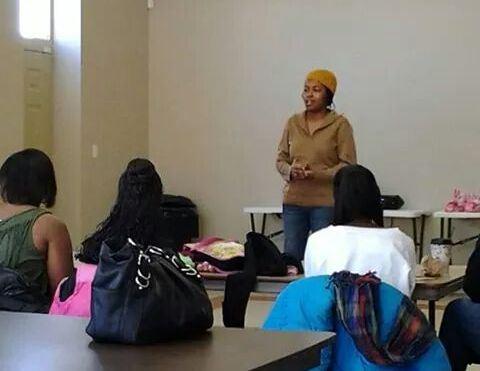Breastfeeding Perspective from Chicago
I have been doing this work for a number of years and I truly feel that this is my calling.
I started as a young mother, with minimal support. I gained interest when I saw other mothers like me, striving to be good parents. I initially started as an outreach worker, promoting Healthy Start, encouraging mothers to get prenatal care early on, and passing out fliers for free pregnancy tests at local health centers.
While this allowed me to help, I didn’t feel as if I was helping enough.
Soon, I became a Breastfeeding Peer Counselor. I worked and volunteered at various places as a Breastfeeding Peer Counselor. I was able to get a scholarship from the Illinois Department of Human Services to sit for the Certified Lactation Counselor Course and Exam.
My initial plan was to become a nurse. I have done coursework on that path, but I am not comfortable with some of the things that come along with being a nurse. I decided to specialize in helping moms “nurse” instead. Based on my experience thus far, I am confident I made the right choice.
I have developed wonderful relationships with the people I have assisted over the years. It’s the comments, compliments, and affirmations that I have received that keep me going
One dad told me, “I’m so glad we listened to you. You sure do know your stuff.” As a matter of fact, I think it’s more flattering when the fathers contact me.
The moms will bring the babies to see me, or call and text me updates about the babies. That shows me that they are proud and want the babies to know me.
That is all the payment in the world for me.
My agency supports breastfeeding in various ways. For one, we have the opportunity to employ Breastfeeding educators. We have relationships with hospitals, federally qualified health centers, and other community resource centers. Our goal is to reduce infant mortality in some highly affected communities throughout Chicago. One of the easiest ways to help is to remind families how important breastfeeding is. We do breastfeeding support and education in the community. We host Community baby showers and workshops for the extra opportunity to make a difference.
In my mind, the area of breastfeeding support that is being overlooked is theaccess to adequate breastfeeding support being more wide spread. In this day and age, there are still people who have no idea what a Breastfeeding Peer Counselor, Certified Lactation Counselor, Doula, or IBCLC is. Therefore, they don’t know how to access one, and if a breastfeeding issue should arise, formula comes into play.
Also, education on breastfeeding should begin in middle school and high school. When the reproductive system is discussed, the function of the breast should be included.
My favorite breastfeeding resources are other breastfeeding advocates. I enjoy learning and networking with like-minded people. Sharing ideas and encouraging each other is more beneficial than picking up a book or clicking a link to a website.
One thing you – the person reading this – can do is “hug” a breastfeeding advocate. This is not easy work and you must be passionate about helping families in order to stay in the field. Also: Ask the expecting families you know if they have access to a Breastfeeding Peer Counselor or Certified Lactation Counselor. If they do not, encourage them to find one.
One thing I’m not really fond of is how I go to conferences and things, and statistics show Black women don’t breastfeed, or are least likely to breastfeed. I take pride in empowering women that look like me. Black women are breastfeeding, and I know because I have been there to help… I don’t like to be stereotyped like that. How about “American born” women are less likely to breastfeed? I have had women of other races decline breastfeeding.
Why do we have to be separated by race? If we all pull together and focus on families breastfeeding, we just might get a better outcome.
I help mothers of all nationalities. All of our breasts serve the same purpose, and all of our babies deserve to be breastfed.
This post is cross-posted from HealthConnect One and is part of the #BlkBFing Next Door: Local changemakers in the African-American breastfeeding movement shine for Black History Month. Read more posts here.



The views and opinions expressed in this post are those of the author(s) and do not necessarily reflect those of MomsRising.org.
MomsRising.org strongly encourages our readers to post comments in response to blog posts. We value diversity of opinions and perspectives. Our goals for this space are to be educational, thought-provoking, and respectful. So we actively moderate comments and we reserve the right to edit or remove comments that undermine these goals. Thanks!